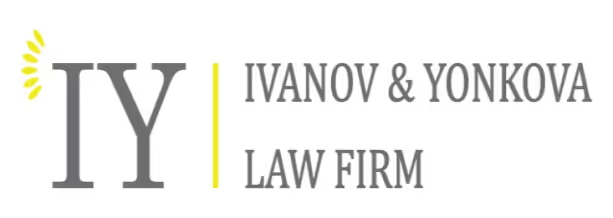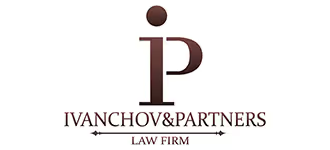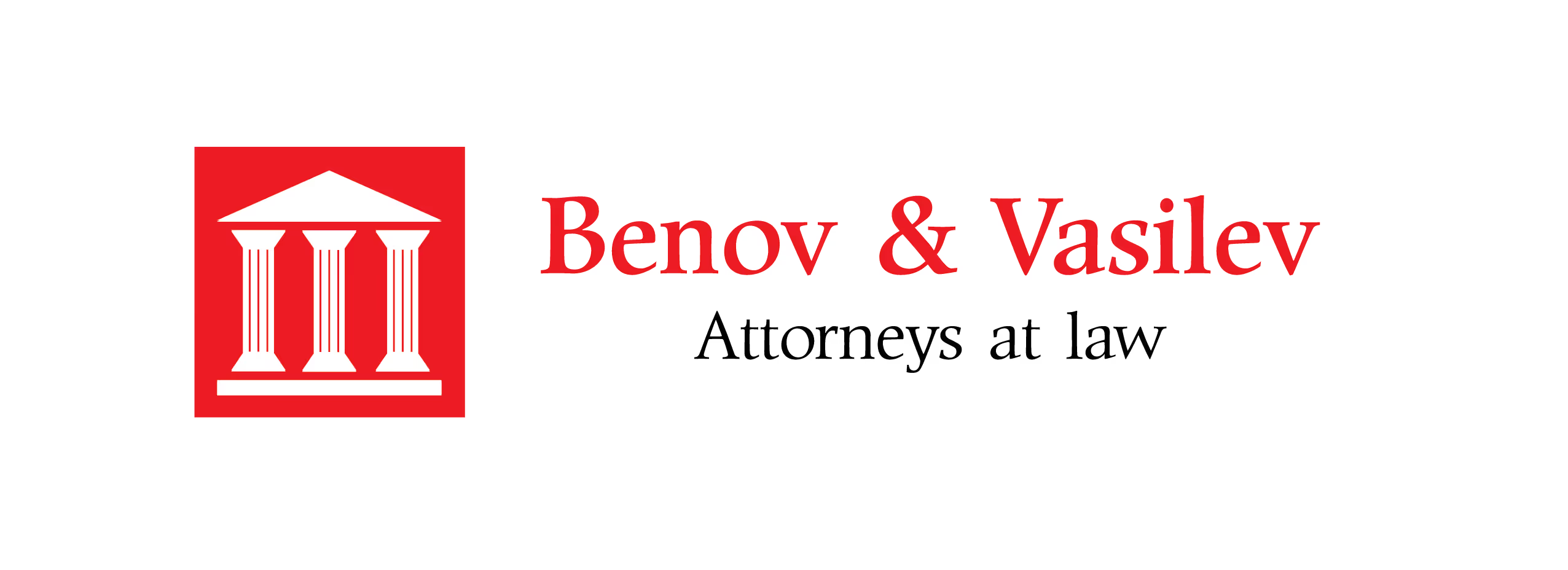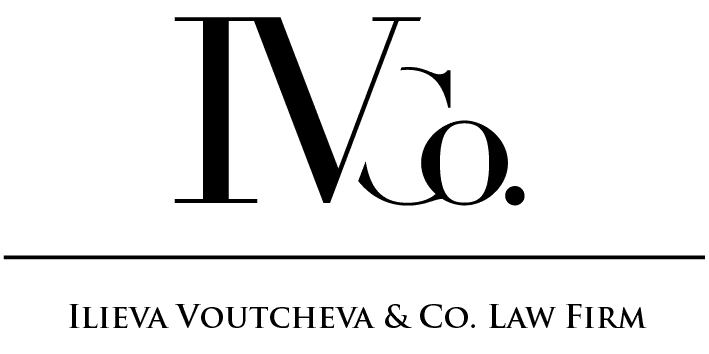Top-Rated Debt Collection Agency in Bulgaria
Your trusted debt collection agency in Bulgaria, guaranteeing swift recoveries with no upfront fees. Navigate our extensive guide for deep insight into local debt collection practices.






The ultimate guide about debt collection in Bulgaria
Why you can trust this guide
At Debitura, we uphold the highest standards of impartiality and precision to bring you comprehensive guides on international debt collection. Our editorial team boasts over a decade of specialized experience in this domain.
Questions or feedback? Email us at contact@debitura.com — we update this guide based on your input.
Debitura By the Numbers:
- 10+ years focused on international debt collection
- 100+ local attorneys in our partner network
- $100M+ recovered for clients in the last 18 months
- 4.9/5 average rating from 621 reviews
Expert-led, locally validated
Written by Robin Tam (16 years in global B2B debt recovery). Every page is reviewed by top local attorneys to ensure legal accuracy and practical steps you can use.
Contributing local experts:
Last updated:
Dealing with debt recovery in Bulgaria? Let Debitura be your guide. With local expertise and global know-how, we'll simplify the process. This guide is your key to conquering debt collection challenges effectively, at home and abroad.
Understanding the Key Participants in Bulgaria's Debt Recovery Landscape
Deciphering the complex structure of debt recovery in Bulgaria involves learning about critical players. Each, from debt collection agencies to bailiffs and attorneys, plays a unique role in the harmonious endeavor of debt recovery within Bulgaria's rigorous legal framework.
Debt Collection Agencies in Bulgaria
In Bulgaria, debt collection agencies play a pivotal role in the amicable phase of debt recovery. They act as mediators between creditors and debtors, striving for settlements through negotiations, thereby enabling faster debt resolution without the need for judicial action. The use of varied communications – such as letters, phone calls, and emails – is a hallmark of their approach, aimed at prompting voluntary payments. These agencies operate under stringent Bulgarian legislation, designed to regulate their actions and ensure the ethical treatment of debtors. This phase is crucial for creditors seeking an efficient and less adversarial means of debt recovery. Nevertheless, there are clear boundaries to their capabilities. When extrajudicial efforts exhaust without yielding payment, the baton passes to legal proceedings for resolution. Thus, debt collection agencies in Bulgaria form an integral yet preliminary step in the broader spectrum of debt collection processes.
Lawyers in Bulgaria
In Bulgaria, the engagement of lawyers is particularly crucial when the debt collection process escalates to legal proceedings. These legal professionals are adept at navigating through the complexities of Bulgaria's judicial system, ensuring that creditors' rights are meticulously represented and upheld. A creditor may need to involve a lawyer as soon as it becomes clear that amicable settlement efforts have failed, and the case requires legal intervention. Lawyers in Bulgaria undertake a myriad of tasks including the preparation and filing of necessary legal documents, representation in court, and advising on the potential legal outcomes. Their in-depth understanding of Bulgarian debt recovery laws, coupled with their experience in judicial proceedings, makes them invaluable allies in the pursuit of debt recovery. Moreover, they aid in securing enforcement orders and assisting in enforcement proceedings, which are fundamental in actual debt collection.
The Role of Bailiffs in Bulgaria
In Bulgaria, the enforcement of debt transits from the judicial realm into the operational hands of bailiffs once the court grants a writ of enforcement. Bailiffs, as judicial enforcement officers, assume a pivotal role in actualizing creditors' rights through real-world actions, such as asset seizures and bank account blocking. For creditors, this phase signifies a mandatory shift to compulsion due to a debtor's non-compliance with the court's orders. Before enlisting a bailiff, creditors need an enforceable title, usually rendered by a court decision which becomes irrevocable if the debtor doesn't contest it within a specified period post-notification.
The repertoire of a bailiff in Bulgaria spans diverse but highly regulated tasks. Upon authorization, bailiffs execute enforcement measures including, but not limited to, the freezing of debtor's funds and initiating the sale of property, all the while adhering to stringent legal guidelines designed to balance enforcement efficacy with the protection of debtor's rights. In essence, the role of bailiffs is critical for creditors navigating the Bulgarian jurisdiction to enforce debt recovery legally and effectively.
Understanding Bulgarian Debt Collection Laws
Pursuing debt recovery in Bulgaria necessitates a comprehensive insight into its intricate legal system. Adhering to these laws not only smoothens debt retrieval, but also promotes procedural equitability, thereby fostering trust and soundness in commercial conduct.
The Regulatory Environment and Civil Court System in Bulgaria
In Bulgaria, the civil court system is designed to facilitate the fair and efficient resolution of disputes, including debt collection, through a structured hierarchy of courts.
- District Courts: These are the primary courts for initial case hearings. They serve as the first point of contact in the judicial process for most civil cases, handling a wide range of matters with a focus on disputes involving smaller financial sums.
- Regional Courts: Acting as both first and second-instance courts for specific cases, Regional Courts handle appeals from District Courts. They deal with cases of higher material interest or societal significance, providing a critical review of lower court decisions.
- The Supreme Court of Cassation: As the highest appellate instance in Bulgaria, the Supreme Court of Cassation has the final say in the legal disputes, ensuring uniformity in the application of the law across the country. It reviews appeals against decisions made by lower courts to ensure justice is served at the highest level.
The civil court system in Bulgaria is designed to ensure that justice is accessible and adaptable to the complexities of modern disputes, including those involving debt recovery. Its three-tiered structure ensures that both local and more significant, critical cases are reviewed thoroughly, allowing for an appeals process that upholds the principles of fairness and justice.
Key Legislation Impacting Debt Collection in Bulgaria
In Bulgaria, the legal framework for debt collection is shaped by a set of laws and regulations aimed at balancing the rights and obligations of creditors and debtors. Ensuring ethical practices and consumer protection stands at the forefront of these legal provisions.
- Consumer Protection Act - Aimed at regulating debt collection practices to prevent aggressive tactics and ensure clear communication with debtors.
- Civil Procedure Code - Governs the judicial process for debt recovery, including the enforcement of court orders and the execution of debts.
- Data Protection Act - Ensures that personal data collected during the debt collection process is handled in compliance with privacy laws.
The interaction of these regulations creates a comprehensive legal environment for debt collection in Bulgaria. Creditors are required to adhere to strict guidelines that protect the consumer, while also providing clear avenues for the recovery of unpaid debts. Understanding these key legislative pillars is essential for any international creditor navigating the Bulgarian debt collection landscape.
Consumer Protection from Unfair Collection Practices in Bulgaria
In Bulgaria, consumer protection in the context of debt collection is underpinned by legislation aimed at ensuring fair practices and safeguarding debtor rights.
- The transition of debt collectors from a registration system to a licensing system to counteract aggressive collection practices.
- Obligation for debt collection agencies to provide clear, accurate information to debtors, including debt details and creditor identity.
- Restrictions on communication methods to respect debtor privacy, limiting interaction to phone calls, written correspondence, and electronic messages without personal contact.
- A cap on sought debt, which should not exceed the principal amount plus legal interest, preventing undue financial pressure on the debtor.
- Oversight by the Bulgarian National Bank and the Consumer Protection Commission, ensuring adherence to regulations and protecting consumers from unfair practices.
The Bulgarian legislative framework distinctly prioritizes consumer rights within the debt collection domain, aiming to eliminate coercive practices while ensuring creditors can recover dues in a lawful and ethical manner. Through careful regulation and oversight, Bulgaria fosters an environment where debt recovery and consumer protection go hand in hand, reflecting a balanced approach to financial disputes.
Understanding Amicable Debt Collection in Bulgaria
Bulgaria's pre-legal, or amicable, debt collection involves tactful tactics to settle debts sans court interference, often managed by a debt collection agency. This less labyrinthine method is expedited compared to the legal path. We delve into the strategies, stages, and salient considerations of this process herein.
- Amicable vs. Judicial Recovery: Preferable due to efficiency and lower cost, involves negotiation before court action.
- Collection Agencies Regulation: Transitioning to a licensing system with strict criteria to ensure ethical behavior.
- Consumer Protection Focus: Laws aim to safeguard debtor's rights, limiting aggressive collection tactics and protecting privacy.
- Statute of Limitations: General statute of 5 years for public debts, with specific conditions for interruption or suspension.
- Fees and Interest Rates: Creditors entitled to recover costs, statutory interest rate for late payments set at 10.05% annually.
- Essential Documents: Contracts, communication records, and evidence of debt crucial for a substantiated claim.
- Costs of Amicable Recovery: Minimal compared to court proceedings, primarily communication and negotiation efforts.
- Timeline for Amicable Debt Recovery: Varies based on debtor's response, generally quicker than judicial proceedings.
- Use of Amicable Recovery: Ideal for maintaining a positive relationship or when court expenses are unjustifiable.
- Transition to Judicial Recovery: Considered if amicable efforts fail, based on strategic factors like the statute of limitations.
Navigating Amicable Debt Collection in Bulgaria
In Bulgaria, amicable debt collection represents a balanced blend between understanding and assertiveness, focusing on empathy-driven negotiation while keeping the creditor's recovery goals in focus. This harmonious approach is especially effective in fostering continued business relationships and ensuring voluntary compliance by debtors. For claims that are clear-cut and undisputed, initiating with an amicable approach avoids the intricacies and financial burden of court proceedings.
Given the potential complexity of international debt recovery, starting with an amicable approach is advisable unless facing a contested or legally intricate claim.
The Collection Agency's Role in Amicable Debt Recovery in Bulgaria
Agencies specialized in debt recovery, such as Debitura, become indispensable in amicable collection, particularly for creditors who may not possess the necessary knowledge or resources to engage effectively in debt recovery. Debitura leverages a comprehensive strategy beginning with a thorough assessment of the outstanding dues, proceeding to establish communication through courteous reminders or formal notices. Being detached from the emotional dimension of the debt, agencies can offer unbiased, professional mediation that often paves the way to successful recovery.
Advantages of Amicable Debt Resolution
The amicable collection offers tangible benefits for both creditor and debtor. Creditors avoid the sizable expense associated with legal actions and maintain vital business relationships, thanks to the process's intrinsic respectfulness. For debtors, it translates into feasible repayment plans that alleviate financial burdens while promoting goodwill towards the creditor. This methodology underscores understanding and mutual respect, fostering an environment conducive to the settlement of financial obligations.
Transitioning from Amicable to Legal Collection in Bulgaria
Despite the merits of amicable collection, scenarios may emerge where legal intervention becomes unavoidable. Signals that may prompt a shift towards judicial collection include lack of communication, recurrent failure to honor commitments, or intentional avoidance by the debtor. This transition requires deliberate consideration, acknowledging the significant expenses and duration typical of legal proceedings, and is generally viewed as a last resort after amicable avenues have been thoroughly explored.
Amicable Debt Collection Costs in Bulgaria
Debitura offers a transparent and equitable approach to international debt collection in Bulgaria. Our contingency-based fee structure ensures that you only incur costs upon the successful recovery of funds, ranging from 7.5% to 30%. Begin your journey without upfront fees or mandatory subscriptions, and receive a custom quote tailored to your specific situation. Discover more about our pricing.
How it Works
The process with Debitura is streamlined and user-friendly, typically unfolding over 2-3 months for amicable debt recovery in Bulgaria:
- Sign Up for Free: Begin without any initiating costs. Create your Debitura account now.
- Upload Your Claim: Present your claim, review the contingent success fee, and authorize to commence the process.
- Track Progress: Follow the progress of the amicable recovery process in real-time via your dedicated Debitura dashboard.
- Consider Legal Action: In the event an amicable resolution is not achieved, we will provide three competitive quotes from local legal professionals, empowering you with the autonomy to determine your next move.
Understanding Bulgaria's Judicial Debt Recovery System
In Bulgaria, unresolved debts may escalate to the judicial level for recovery, a process involving legal enforcement and often bailiff intervention. This detailed guide provides insights into Bulgaria’s specific judicial debt collection procedures, highlighting the importance of legal assistance unless within small claims boundaries.
- Hierarchical Courts: The system includes District, Regional, Administrative, Military Courts, and the Supreme Court of Cassation.
- Licensing Requirement: Debt collection agencies must be licensed, listed in a unified registry, and meet minimum capital requirements.
- Consumer Protection: Agencies are limited in their communication methods and must fully disclose debt details to consumers.
- Pre-contact Obligations: Agencies must ensure they're properly licensed and managed by individuals with clean records before contacting debtors.
- Debt Amount Limitation: Law caps recoverable debt to the original sum plus legal interest, protecting consumers from exploitation.
- Violation Reporting: Consumers can report rights violations to the Commission for Consumer Protection, facing significant fines for non-compliance.
- Judicial Debt Collection: Combines extrajudicial actions and judicial actions, offering a structured pathway for debt recovery.
- Small Claims Procedure: For claims not exceeding €5000, a simplified, cost-effective process is available across the EU.
- Court and Legal Fees: The choice of court depends on dispute amount and case nature, with fees varying by complexity and debt amount.
Shifting from Amicable to Judicial Debt Collection in Bulgaria
In Bulgaria, the transition from amicable to judicial debt collection marks a pivotal phase in debt recovery efforts. Amicable collection involves sending demand letters, making phone calls, and negotiating settlements without court involvement. This method is often quicker and less costly, aligning with the principle that engaging in negotiation and mediation is encouraged before resorting to legal action. However, when disputes arise or there is a need for debt enforcement that cannot be resolved amicably, shifting to judicial debt collection becomes necessary.
The transition to judicial methods is of particular significance in cases of non-compliance by the debtor or disputes over the debt validity. In such scenarios, seeking legal counsel or representation becomes crucial. Legal experts can navigate the complexities of the Bulgarian legal system, ensuring that the debt recovery process is conducted efficiently and in accordance with the law, thereby maximizing the chances of successful debt enforcement.
The Importance of a Formal Judgment in Bulgaria
A court order represents an official judgment by a court that a debt is owed by the debtor to the creditor. Obtaining one is fundamental for debt recovery in Bulgaria as it serves as the enforceable document needed to initiate enforcement proceedings against a debtor. This formal judgment provides the legal basis for various enforcement actions, such as bank account seizures or property claims, thereby compelling the debtor to fulfill their financial obligations.
To get a court order, a creditor must file a claim with the appropriate Bulgarian court, presenting evidence of the outstanding debt and any contract or agreement substantiating the claim. The process can vary, from straightforward applications for issuing a European Payment Order for uncontested claims within the EU to more complex litigation procedures for disputed debts. It is essential for creditors to understand that securing a court order is a critical step in the legal enforcement of debts, emphasizing the importance of expert legal representation in navigating the judicial debt collection process.
Determining the Appropriate Court in Bulgaria
In determining the appropriate forum for judicial debt collection in Bulgaria, several factors must be considered, including the claim size, complexity, debtor’s location, and specific legal issues involved. The Bulgarian court system hierarchy, starting from District Courts for initial case hearings to the Supreme Court of Cassation as the highest appellate instance, plays a critical role in this determination.
For claims up to €5000, the European Small Claims Procedure provides a simplified alternative that allows for cross-border resolution without the need for extensive legal representation. This cost-effective method is particularly useful for straightforward debt recovery cases across EU member states, excluding Denmark. When claim amounts exceed this threshold or involve more complex legal disputes, creditors may need to file their claims in either District Courts or Regional Courts, depending on the nature and monetary value of the case. Understanding these criteria and thresholds is essential for choosing the correct court to handle a debt recovery case, ensuring an efficient and effective legal process.
Furthermore, the Bulgarian legal system’s division of cases, with administrative courts handling specific administrative acts and civil and criminal cases being heard in district and appellate courts, underscores the importance of correctly identifying the judicial body best suited to the specific circumstances of each debt collection case.
Small Claims Court in Bulgaria
In Bulgaria, the Small Claims Court provides an expedited and simplified legal framework for resolving disputes involving claims that do not exceed €5000. This mechanism aligns with the European Small Claims Procedure, designed to streamline the resolution process for low-value disputes across EU member states, excluding Denmark. The procedure is characterized by reduced court fees, the potential for cost reimbursement upon successful claims, and a straightforward application process. It incorporates the submission of a standardized claim form, followed by the court and defendant's response, and may include oral hearings if deemed necessary. One of the salient features of this system is the enforceability of decisions across EU countries, making it an efficient alternative for cross-border small claims disputes. However, it is pivotal to note the limitation on the claim amount, set at a maximum of €5000, underscoring the procedure's targeted application towards smaller financial disputes. Utilizing the Small Claims Court in Bulgaria offers distinct advantages such as cost-effectiveness, swiftness in dispute resolution, and the enforceable nature of decisions within the EU framework, albeit with the aforementioned cap on the claim amount.
Ordinary Proceedings in Bulgaria
In Bulgaria, ordinary proceedings offer a comprehensive legal framework for resolving disputes of significant value and complexity beyond the scope of the Small Claims Court. Unlike the simplified and cost-effective nature of the Small Claims Court, limited to claims up to €5000, ordinary proceedings provide a platform for handling more substantial and detailed cases. These proceedings require legal representation, ensuring that both parties have the necessary legal guidance and advocacy to navigate the complexities of the legal process. This prerequisite underscores the importance of expert legal knowledge in crafting and presenting arguments, dealing with procedural intricacies, and ensuring the accurate interpretation of the law. Governed by the Civil Procedure Code, ordinary proceedings encapsulate a wide range of civil matters, including but not limited to contractual disputes, torts, and property rights. The advantage of ordinary proceedings lies in their capacity to address nuanced legal issues, offer tailored remedies, and provide a more thorough examination of the case. Moreover, the decision rendered in an ordinary proceeding can be more encompassing, addressing multiple facets of a dispute and thus providing a more definitive resolution to complex legal matters.
Bulgaria's Debt Enforcement: A Handy Guide
Discover how to navigate Bulgaria's debt enforcement landscape after securing a court order. This complex process grants you the right to enforce a ruling, allowing for asset seizure to fulfill your claim. This is effectively facilitated by official bailiffs under stringent rule of law.
- Legal Enforcement Documents: A judicial order or enforceable title is mandatory for initiating debt enforcement in Bulgaria.
- Role of Judicial Enforcement Officers: Judicial officers are crucial in executing enforcement actions, including asset seizures.
- Assets Subject to Enforcement: Includes a broad range of assets such as property, monetary claims, and funds subject to certain exemptions.
- Enforcement Methodology: Techniques include seizing property, freezing funds, and transferring ownership rights to satisfy debtor obligations.
- Exemptions from Enforcement: There are specific exemptions to protect the debtor's essential living standards during enforcement.
- Costs and Expenses: Initial enforcement-related costs are borne by the creditor, with potential for debtor reimbursement.
- Competent Authority: Enforcement cases are handled by the district court, highlighting the structured legal process in Bulgaria.
- Consumer Protection: Legislation aims to regulate debt collection, ensuring ethical practices and debtor rights are upheld.
- International Efficiency: The legal framework supports cross-border asset recovery, enhancing enforcement against organized crime.
The Legal Framework and Judicial Process
Understanding Bulgaria's court system is essential in navigating the debt enforcement landscape. The hierarchical structure, including District, Regional, and Administrative Courts, plays a crucial role in addressing various cases, including those related to debt enforcement. The Supreme Court of Cassation stands as the highest appellate instance, ensuring the enforcement of civil claims adheres to the statutory framework and upholds fundamental rights within the European Union.
Stages of Debt Enforcement
The enforcement process begins with the creditor obtaining an enforceable title, signifying the debtor's obligation. This phase underscores the significance of judicial enforcement officers – or bailiffs – responsible for executing court orders. Their duties range from identifying and valuating assets to overseeing their sale, typically via auction. Notably, personal items and certain income levels are safeguarded to meet debtors' basic living needs, illustrating a balance between creditor rights and debtor protections.
Regulatory Overview and Role of Judicial Enforcement Officers
The Bulgarian enforcement model relies heavily on regulatory oversight, especially concerning the operations of debt collection firms. Recent legislative proposals attempt to transition these firms from a registration to a licensing system, mandating firms to follow strict guidelines that prevent unethical practices. This includes the provision of clear and accurate information to debtors and the respect of privacy. Judicial enforcement officers are entrusted with the profound responsibility of putting these regulations into practice, striking a fair balance between efficient debt recovery and protection of debtor rights.
Consumer Protections and Ethical Practices
Consumer rights are at the heart of Bulgaria's debt enforcement framework. The law mandates that debt collection agencies respect debtor privacy, limit communication methods to non-intrusive means, and provide comprehensive debt information. Restrictions on contact times, the prohibition of excessive demands beyond the original debt plus legal interest, and the imperative for transparent operations underscore the focus on ethical conduct. Violations invite penalties, signaling the rigorous regulatory stance to protect consumers.
Preparation and Costs
Creditors contemplating enforcement actions must ensure they hold a valid enforceable title and may extend a final payment demand to the debtor. This preparatory stage not only sets the legal proceedings in motion but also respects the debtor's right to amicably settle obligations, mitigating potential challenges against enforcement actions. The creditor is responsible for covering initial enforcement costs, which are variable and contingent on the complexities involved. This underscores the importance of a well-considered approach to debt recovery in Bulgaria.
Understanding Debt Recovery Through Insolvency Proceedings in Bulgaria
When faced with a debtor unable to fulfill financial responsibilities on time, traditional recovery methods like asset seizure are often ineffective. Here, insolvency proceedings step in as an essential solution. These structured legal procedures aim for a systematic liquidation of the debtor's assets, providing the final opportunity to retreive any possible compensation for unsettled claims.
- Initial Costs Assessment: Costs of proceedings must be deemed coverable for insolvency to start.
- Priority Creditors: Include labor claims and real guarantees, followed by tax and special privilege credits.
- Claim Lodging Deadline: Claims must be lodged within 1 to 3 months from proceedings start.
- Proceedings Duration: Insolvency proceedings can last between seven to ten years.
- Documents Required: Notarised power of attorney, invoices, and sales contracts among others.
Insolvency Proceedings Guide for Bulgaria: A Closer Look at Key Components
In Bulgaria, insolvency proceedings chart a course for remedying situations where debtors find it impossible to fulfill their fiscal commitments. Governed by the comprehensive legislative environment of the Insolvency Act, these procedures are meticulously designed to either restructure the debtor's financial standing or liquidate assets to satisfy creditor demands. Embarking on insolvency may be a voluntary action by the debtor aiming to responsibly manage debts or, alternatively, initiated by creditors to recover owed amounts. Critical to beginning this journey is the demonstration of prolonged financial distress, typically evidenced by the debtor's persistent failure to meet monetary obligations.
The Prioritization and Rights of Creditors in Bulgarian Insolvency Framework
In the landscape of Bulgarian insolvency, understanding the hierarchy and categorization of creditor claims is pivotal. The spectrum ranges from secured claims, safeguarded by collateral, to unsecured claims, which lack any form of security. For creditors, identifying the nature of their claim is essential as it directly influences their potential for recovery. To safeguard their interests, creditors must proactively register their claims within designated deadlines and consider participation in activities like creditor committees. Such engagement not only elevates the likelihood of achieving favorable outcomes but also steers the direction of reorganization plans effectively.
Financial and Temporal Considerations of Insolvency in Bulgaria
Insolvency proceedings in Bulgaria embody a complex web of financial and temporal investments. Costs incurred span court fees, administrative charges, and potentially, expenditures on legal counsel – all of which are deducted from the debtor's estate prior to any disbursement to creditors. The timeline of these proceedings varies immensely, shaped by the intricacy of the debtor’s financial scenario, the breadth of creditor claims, and the emergence of any legal intricacies. Creditors embarking on this pathway must brace for a potentially prolonged process, recalibrating expectations regarding the swiftness of debt recovery correspondingly.
Find a Local Debt Collection Lawyer
Need court-ready representation? Share your case once and receive up to three proposals from vetted litigation attorneys—free, fast, and with no commitment.
- Verified specialists
- Quotes in 24 h, no hidden fees
- Fair, pre-negotiated rates

Ivanov and Yonkova Law Firm is a premier law firm in Sofia offering effective Debt Collection services in Bulgaria, positioning itself as the go-to partner for debt recovery since 2019, with a reputation bolstered by industry accolades and professional memberships.

Lawyer Yuliya Danova is a premier law firm in Varna offering effective Debt Collection services in Bulgaria, established in 2009 and renowned for its expertise, affordability, and membership in prestigious legal organizations.

Ivanchov & Partners Law Firm is a premier law firm in Sofia offering effective Debt Collection services in Bulgaria, positioning itself as the go-to partner for debt recovery with a foundation in 2016 and recognition as a "Zlatna Firma" laureate.

Liliana Bakayoko is a premier law firm in Paris offering effective Debt Collection services in France, renowned as the go-to partner for debt recovery with accolades like Business Lawyer of the Year 2024 and memberships in AEA and Global Law Experts.
.avif)
Dichko Yanev Law Firm is a premier law firm in Burgas offering effective Debt Collection services in Bulgaria, established in 2013 and recognized by the Burgas Bar Association, making it the go-to partner for debt recovery.

Benov and Vasilev Attorneys at Law is a premier law firm in Sofia offering effective Debt Collection services in Bulgaria, positioning the firm as the go-to partner for debt recovery with a foundation in 2017 and membership in the e-Residency ecosystem.

Ilieva, Voutcheva & Co is a premier law firm in Sofia offering effective Debt Collection services in Bulgaria, recognized by Legal500 and ITR World Tax, with Globalaw and Sofia Bar Association memberships, and established in 2003 for trusted debt recovery solutions.
Novel Law - Kolcheva, Koev Law Firm is a premier law firm in Sofia offering effective Debt Collection services in Bulgaria, established in 1994, ISO 9001:2008 certified, recognized by Media Law International, and a member of the Sofia and International Bar Associations.

Dobrev & Lyutskanov Law Firm is a premier law firm in Sofia offering effective Debt Collection services in Bulgaria, renowned as a trusted partner in debt recovery since 1989, with accolades from Corporate Intl, Chambers & Partners, and memberships in key international chambers.

Rositsa Kebedjieva is a premier law firm in Burgas offering effective Debt Collection services in Bulgaria, positioning itself as the go-to partner for debt recovery with over a decade of experience, founded in 2023, and memberships in key legal associations.

Borislavova & Ivanov Law Firm is a premier law firm in Sofia offering effective Debt Collection services in Bulgaria, recognized for excellence with awards like the Zlatna Firma and Orli Pravo, and memberships in the Sofia Bar Association and Supreme Bar Council, since 2019.

New Balkans Law Office is a premier law firm in Sofia offering effective Debt Collection services in Bulgaria, positioning itself as the go-to partner for debt recovery with international experience, founded in 2006, and offices in Sofia and London.

Collect Center is a premier debt recovery agency in Bulgaria offering effective risk-free Debt Collection services, positioning itself as the go-to partner for debt recovery since 2019 with a success-fee model, EU-wide operations, and exclusive Debitura partnership, adhering to No Cure No Pay terms.





.svg)

.webp)
.png)

.png)
.svg)












.svg)

